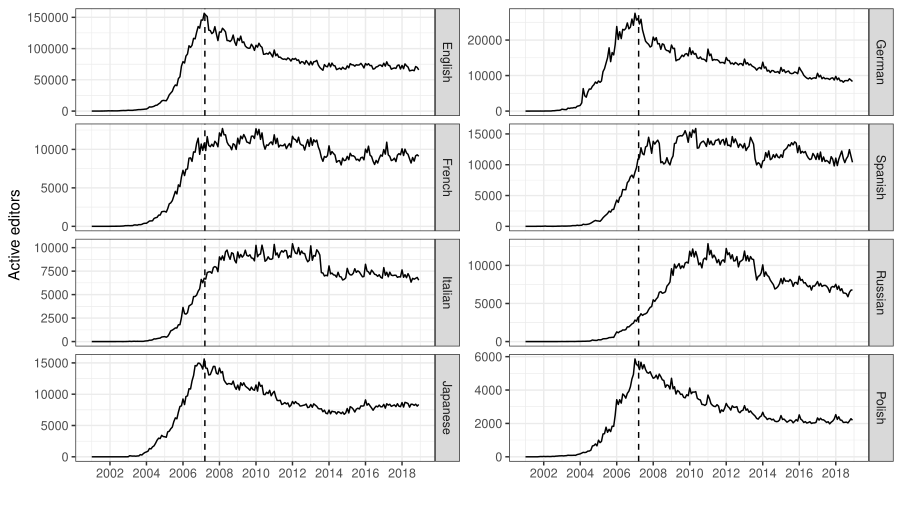Lifecycles of Knowledge Commons: Difference between revisions
No edit summary |
|||
| Line 37: | Line 37: | ||
== Funding and Disclaimer == | == Funding and Disclaimer == | ||
[[File:NSF CAREER.png|thumb|right|Logo of the [https://beta.nsf.gov/funding/opportunities/faculty-early-career-development-program-career NSF Faculty Early Career Program] (CAREER) which is funding this research.]] | |||
This material is based upon work supported by the National Science Foundation under grant number IIS-2045055. | This material is based upon work supported by the National Science Foundation under grant number IIS-2045055. | ||
Any opinions, findings, and conclusions or recommendations expressed in this material are those of the author(s) and do not necessarily reflect the views of the National Science Foundation. | Any opinions, findings, and conclusions or recommendations expressed in this material are those of the author(s) and do not necessarily reflect the views of the National Science Foundation. | ||
Latest revision as of 07:24, 7 June 2022
This page documents work related to the US National Science Foundation award CAREER: New Approaches to Managing Lifecycles of Digital Knowledge Commons (IIS-2045055) active between 2021-04-01 through 2026-03-31 (expected).
Decades after many of the most important peer produced knowledge commons were launched—projects like Wikipedia and GNU/Linux—many are under attack by vandalism, disinformation campaigns, and a range of special interests. At the same time, many of the largely volunteer-based groups who sustain mature communities have been stable in membership or shrinking for years. A body of research suggests that these patterns of decline are due, at least in part, to commons becoming increasingly closed to contributions. Integrating and building on a body of social computing and social scientific research, this research will study why knowledge commons increasingly reject the work of volunteers and analyze how these communities should structure themselves to better manage growth. In doing so, the work will advance our general understanding of the relationship between collective action, public goods, and common pool resource governance.
Publications[edit]
- Khatri, Sejal, Aaron Shaw, Sayamindu Dasgupta, and Benjamin Mako Hill. 2022. “The Social Embeddedness of Peer Production: A Comparative Qualitative Analysis of Three Indian Language Wikipedia Editions.” In CHI Conference on Human Factors in Computing Systems (CHI ’22), 1–18. New York, New York: ACM. https://doi.org/10.1145/3491102.3501832. [Official Link] [Preprint (PDF)] (Awards: CHI '22 Best Paper Honorable Mention Award)
Links and Resources[edit]
- Public project summary on the NSF website
- Project description and references included in the original NSF application
- The project team tends to spend time in the
#communitydatachannel on OFTC (irc.oftc.net). For more, see our page on IRC.
Research in progress[edit]
- Content Integrity and Disinformation Risks Across Wikipedia Language Editions — Ongoing interview-based research study
People[edit]
- Benjamin Mako Hill (UW) [PI]
- Charles Kiene (UW)
- Zarine Kharazian
Biographies of everyone working on the award on the People page in this wiki.
Funding and Disclaimer[edit]

This material is based upon work supported by the National Science Foundation under grant number IIS-2045055.
Any opinions, findings, and conclusions or recommendations expressed in this material are those of the author(s) and do not necessarily reflect the views of the National Science Foundation.

